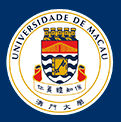预约演示
更新于:2026-02-26
Benserazide
更新于:2026-02-26
概要
基本信息
结构/序列
分子式C10H15N3O5 |
InChIKeyBNQDCRGUHNALGH-UHFFFAOYSA-N |
CAS号322-35-0 |
关联
7
项与 Benserazide 相关的临床试验NCT05711082
MONITORING OF REALITY AND DOPAMINE: A PHARMACOLOGICAL RESEARCH
Reality-monitoring characterizes the ability to determine whether information was perceived in the environment or only imagined . Impaired reality-monitoring abilities have been associated with hallucinations in patients with schizophrenia and patients with Parkinson's disease.
The investigators hypothesize a link between dopaminergic (DA) transmission and reality-monitoring.
The investigators hypothesize a link between dopaminergic (DA) transmission and reality-monitoring.
开始日期2024-01-15 |
ChiCTR2000039201
Pharmacology of levodopa/carbidopa versus levodopa/benserazide in patients with parkinson's disease
开始日期2020-12-01 |
申办/合作机构 |
NCT04432623
A Phase 1b Sequential Open Label Dose-Ranging Study of Safety, Pharmacokinetics, and Preliminary Activity of Benserazide in Subjects With Beta Thalassemia Intermedia and Sickle Cell Disease
Beta-thalassemias and hemoglobinopathies are serious inherited blood diseases caused by abnormal or deficiency of beta A chains of hemoglobin, the protein in red blood cells which delivers oxygen throughout the body.The diseases are characterized by hemolytic anemia, organ damage, and early mortality without treatment. Increases in another type of (normal) hemoglobin, fetal globin (HbF), which is normally silenced in infancy, reduces anemia and morbidity. Even incremental augmentation of fetal globin is established to reduce red blood cell pathology, anemia, certain complications, and to improve survival.
This trial will evaluate an oral drug discovered in a high throughput screen, which increases fetal globin protein (HbF and red blood cells expressing HbF)and messenger ribonucleic acid (mRNA) to high levels in anemic nonhuman primates and in transgenic mice. The study drug acts by suppressing 4 repressors of the fetal globin gene promoter in progenitor cells from patients. The drug has been used for 50 years in a combination product for different actions - to enhance half-life and reduce side effects of a different active drug- and is considered safe for long-term use.
This trial will first evaluate 3 dose levels in small cohorts of nontransfused patients with beta thalassemia intermedia. The most active dose will then be evaluated in larger subject groups with beta thalassemia and other hemoglobinopathies, such as sickle cell disease.
This trial will evaluate an oral drug discovered in a high throughput screen, which increases fetal globin protein (HbF and red blood cells expressing HbF)and messenger ribonucleic acid (mRNA) to high levels in anemic nonhuman primates and in transgenic mice. The study drug acts by suppressing 4 repressors of the fetal globin gene promoter in progenitor cells from patients. The drug has been used for 50 years in a combination product for different actions - to enhance half-life and reduce side effects of a different active drug- and is considered safe for long-term use.
This trial will first evaluate 3 dose levels in small cohorts of nontransfused patients with beta thalassemia intermedia. The most active dose will then be evaluated in larger subject groups with beta thalassemia and other hemoglobinopathies, such as sickle cell disease.
开始日期2020-10-05 |
申办/合作机构 |
100 项与 Benserazide 相关的临床结果
登录后查看更多信息
100 项与 Benserazide 相关的转化医学
登录后查看更多信息
100 项与 Benserazide 相关的专利(医药)
登录后查看更多信息
1,283
项与 Benserazide 相关的文献(医药)2026-03-01·EXPERIMENTAL NEUROLOGY
Levodopa differentially modulates spectral features in cerebellum and basal ganglia in a rodent model of Parkinson's disease
Article
作者: Akhtar, Kainat ; Feustel, Paul J ; Shin, Damian S ; Molho, Eric S ; Williams, Jack ; Utturkar, Simran ; Groom, Emily ; Modi, Kelly ; Singh, Rajveer ; Sabourin, Shelby
The cerebellum has largely remained overlooked for its role in Parkinson's disease (PD). Interrogation of this motor system may reveal innovative targets for therapeutics for PD. Here, we investigate longitudinal changes in spatiospectral dynamics in basal ganglia (BG) and cerebellar nuclei to characterize altered patterns of neural activity in both motor-related brain areas in a rodent model of PD. To do so, we used the unilateral 6-hydroxydopamine (6-OHDA) rat model and recorded local field potentials (LFP) before and during treatment with levodopa and benserazide from three to six weeks post-lesion. Beta oscillations (13-35 Hz) emerged in the ipsilateral striatum of hemiparkinsonian animals at three weeks, whereas beta, theta (4-8 Hz) and alpha (8-12 Hz) oscillations appeared in the DN at six weeks. Levodopa decreased striatal beta oscillations at six weeks post-lesion (p = 0.003) compared to untreated PD animals but did not affect theta oscillations in the striatum and dentate nucleus at this time. These findings suggest that the cerebellum may play a variable role in PD depending on dopamine status: a mirroring/pathologic role during dopamine depletion and a compensatory role during dopamine replacement. This is the first time spectral dynamics in BG and cerebellum have been investigated longitudinally in a PD model, and our findings provide clearer insight regarding the dynamic engagement of the cerebellum during dopamine depletion and replacement therapy. A better understanding about the role of the cerebellum in PD pathophysiology may unmask future targets for therapeutic development.
2026-03-01·INTERNATIONAL JOURNAL OF PSYCHIATRY IN MEDICINE
Rapid-Onset SIADH Triggered by Combined Duloxetine and Levodopa Use in an Older Adult With Depression and Parkinsonism: A Previously Unreported Interaction
Article
作者: Akgül, Yavuz Sultan Selim ; Cengiz, Burcu Eren ; Akın, Sibel
Objective:
The syndrome of inappropriate antidiuretic hormone secretion (SIADH) is a potentially life-threatening electrolyte disturbance commonly encountered in older adults, particularly in association with serotonergic and dopaminergic medications. Both duloxetine and levodopa have been individually implicated in the development of SIADH, although the mechanism often remains unclear.
Methods:
Single case presentation and review.
Results:
A 73-year-old woman with newly diagnosed depression and parkinsonism was initiated on duloxetine (30 mg/day) and levodopa/benserazide (tradename Madopar) (100/25 mg, 3 times daily). Within 24 h, she developed fatigue, nausea, confusion, and dizziness. Laboratory evaluation revealed severe hyponatremia (serum sodium: 115 mmol/L), low serum osmolality (230 mOsm/kg), high urine osmolality (310 mOsm/kg), and urinary sodium of 43 mmol/L, with a clinically euvolemic status. Thyroid and adrenal function test were normal. Both medications were discontinued. Fluid restriction and hypertonic saline infusion led to normalization of sodium levels over 72 h, with complete clinical recovery.
Conclusion:
This case highlights an unusually rapid onset of SIADH after combined initiation of duloxetine and levodopa/benserazide. The temporal proximity of symptom onset suggests a possible synergistic interaction. Clinicians should maintain vigilance for acute hyponatremia in older adults shortly after introducing serotonergic and dopaminergic agents.
2026-02-01·NEUROLOGICAL SCIENCES
Catecholaminergic storm and extreme blood pressure lability induced by combined levodopa/benserazide, selegiline, and piribedil in Parkinson’s disease: a case report
Article
作者: Shen, Shanmei ; Ji, Cheng ; Zhang, Xiaowen ; Zhao, Xingguo ; Huang, Hong ; Huang, Yuhan
BACKGROUND:
Cardiovascular autonomic dysfunction was frequently observed in patients with Parkinson's disease (PD), and severe blood pressure (BP) fluctuations posing significant clinical challenges. Although current dopaminergic drugs, (e.g. levodopa/benserazide, selegiline, and piribedil) could improve motor symptoms, the underlying mechanisms of catecholamine storm triggered by concomitant use remained to be fully elucidated.
CASE PRESENTATION:
A 62-year-old female with PD was admitted in May 2025 due to abnormal BP fluctuations accompanied by fatigue lasting 20 days. In 2021, she was diagnosed with PD and received long-term treatment with levodopa/benserazide (125 mg tid), selegiline (2.5 mg tid), and piribedil (50 mg tid). Systolic blood pressure (SBP) measured in the hospital varied from 57 to 217 mmHg. A 24-hour peak urinary dopamine level of 36,733 µg/24 h was documented. Multidisciplinary consultation led to discontinuation of selegiline and piribedil while levodopa/benserazide was maintained. Within 72 h, her urinary dopamine levels decreased by 77% (to 8,424 µg/24 h), and standard deviation of BP was reduced from 29.59 to 9.95 mmHg-a 66% decrease. During 3-month follow-up period, the patient's home monitored SBP remained stable between 110 and 135 mmHg although her motor symptoms have advanced manifesting as ipsilateral limb tremors and increased muscle tone.
CONCLUSIONS:
This case demonstrated that combined dopaminergic therapy could induce catecholamine storm via synergistic effects, leading to life-threatening fluctuations in BP. Timely identification and adjustment of treatment regimens could effectively reverse cardiovascular risk. However, it was crucial to carefully consider the balance between the progression of motor symptoms and changes in medication treatment.
1
项与 Benserazide 相关的新闻(医药)2025-03-31
关注并星标CPHI制药在线靶向机体亚单位治疗是当前癌症治疗的新型策略,也是现代分子药理学研究和发展的重点方向。线粒体是产生能量的场所和细胞的代谢中心,肿瘤细胞具有代谢异常的特征,这使得开发靶向线粒体的化合物成为新的抗肿瘤研究方向。线粒体与癌症的关系线粒体与癌症的关联体现在多个相互交织的生物学过程中。从凋亡调控到氧化还原稳态,从离子平衡到遗传物质变异,每个环节均存在促癌与抑癌的动态博弈。①线粒体调控细胞凋亡。细胞凋亡可由内源性线粒体途径(Bcl-2 途径)与外源性死亡受体途径两种途径引发。在线粒体在内源性凋亡途径中,Bcl-2 家族蛋白通过调控促凋亡信号,改变内质网与线粒体间的钙离子(Ca²⁺)动态平衡,促使动力相关蛋白 1(Drp1)介导线粒体分裂形成碎片化结构。这一过程导致细胞色素C释放至胞质,进而激活 Caspase-3 并引发凋亡级联反应。外源性凋亡途径则由细胞表面死亡受体(如TNFR 家族)启动,通过 Caspase-8 水解促凋亡蛋白,最终激活下游 Caspase-3和Caspase-7。②线粒体产生 ROS。作为活性氧(ROS)的主要来源,线粒体在肿瘤进展中呈现双重角色。肿瘤细胞内 ROS水平通常高于正常细胞,低浓度 ROS 通过激活Ras-ERK 、MAPK 及PI3K/AKT 等信号通路促进癌细胞增殖与侵袭。例如,肝癌细胞中ROS 通过 AKT 通路调控端粒酶活性,而抗氧化剂N-乙酰半胱氨酸(NAC)可阻断这一过程。然而,当ROS积累超过阈值时,会造成脂质过氧化、蛋白质失活及 DNA 损伤,最终触发细胞死亡。研究显示,丙氨酸内酯通过 ROS-MAPK 通路抑制 NF-κB 、AP-1 和STAT3 转录因子活性,从而抑制肿瘤生长;葫芦素 B则通过提升 ROS 水平破坏线粒体膜电位,诱导前列腺癌细胞凋亡。③线粒体内Ca2+的摄取。线粒体钙离子单向转运体(MCU)介导的 Ca²⁺摄取机制在癌症中同样呈现矛盾特性。肝癌等肿瘤中 MCU 的过度表达可通过增加线粒体内Ca²⁺浓度,激活ROS/Nrf2/Notch信号轴,促进上皮-间充质转化及转移进程。此外,Ca²⁺信号还可通过稳定 p53 蛋白调控细胞周期。但在病理条件下,MCU 介导的 Ca²⁺内流与硫化氢(H₂S)协同引发氧化应激暴发,抑制 ATP 合成和下调热休克蛋白表达,从而抑制癌症的发展。④线粒体DNA(mtDNA)。mtDNA因缺乏组蛋白保护及高效修复系统更易发生突变,其异常与肿瘤代谢重编程密切相关。 mtDNA突变可导致氧化磷酸化功能障碍,迫使癌细胞依赖糖酵解供能(即Warburg 效应),从而适应缺氧微环境。尽管膀胱癌、乳腺癌等肿瘤中常观察到 mtDNA拷贝数减少,但部分癌细胞通过上调核编码线粒体基因进行代偿。例如,肾癌细胞可通过增强线粒体基因表达抵消 mtDNA 损耗,维持呼吸链蛋白水平。靶向线粒体小分子化合物1、亲脂性阳离子小分子化合物亲脂性阳离子小分子可通过肿瘤细胞线粒体超极化膜电位(ψm)实现靶向蓄积。正常细胞线粒体膜电位(130~150 mV)与胞浆(-60 mV)形成约180 mV 跨膜电位差,而肿瘤细胞ψm更高,使带正电分子更易富集于其线粒体。三苯基膦(TPP)容易穿透带负电荷的细胞膜和线粒体膜,使其积累在线粒体的浓度可达其他部位的数百倍,成为纳米递药系统常用靶头。研究发现,罗丹明-23可用于活细胞的线粒体定位,并在较高浓度下通过抑制ATP 合酶破坏线粒体的生物能量功能,从而对线粒体产生毒性,其衍生物 MKT-077能优先在肿瘤细胞线粒体中积累,并诱导线粒体DNA选择性耗损,抑制肿瘤生长。但由于具有反复肾毒性的不良反应,其临床试验已在第一阶段被终止。地喹氯铵(DEQ)可选择性靶向线粒体,从而抑制线粒体 ATP 酶,阻止细胞中的能量产生,但随后发现它在多药耐药性肿瘤细胞系中表现出交叉耐药性,DEQ可通过外排泵被肿瘤细胞排出。尽管 TPP 、DEQ 等药效有限,但其高靶向性为递药系统设计提供了基础,通过偶联药物或结构优化可提升线粒体富集效率,增强抗肿瘤效果,但仍需解决毒性、耐药性等挑战。2、改变线粒体膜通透性的小分子化合物线粒体膜通透性改变是触发内源性细胞凋亡的关键机制,凋亡信号及多种因子通过激活线粒体膜通透性转换孔(MPTP)引发线粒体膜完整性破坏,导致基质肿胀、外膜破裂、膜电位(ψm)下降或丧失、氧化磷酸化解耦联及 ATP 合成减少,进而通过内容物释放诱导细胞凋亡或坏死,在肿瘤治疗中起到重要作用。①Bcl-2 蛋白家族类似物Bcl-2蛋白家族通过调控线粒体外膜通透性成为细胞凋亡的“主开关”,其成员包含促凋亡蛋白(如Bax、Bad)和抗凋亡蛋白(如Bcl-2、Bcl-xL)。基于 Bcl-2同源结构域 BH3设计的靶向小分子化合物中,天然化合物棉酚作为首个 BH3 模拟物可抑制 Bcl-2 并破坏线粒体膜完整性,但因脱靶效应终止临床开发;后续研发的 ABT-737对 B细胞淋巴瘤和小细胞肺癌具有显著细胞毒性,但口服生物利用度不足,经结构优化得到的 ABT-263进入临床 III 期试验,其衍生物 ABT-199(venetoclax,9)凭借纳摩尔级亲和力成为首个FDA批准的BH3 模拟物,用于治疗特定慢性淋巴细胞白血病。此外,WEHI-539作为高选择性 Bcl-xL 抑制剂被发现,经研究优化获得高效口服抑制剂 A-1331852。②VDAC/ANT 抑制剂电压依赖性阴离子通道(VDAC)和腺嘌呤核苷酸转位酶(ANT)作为线粒体膜的关键整合蛋白,分别在线粒体外膜和内膜构成代谢物运输的重要通道。研究表明,VDAC/ANT 复合体功能紊乱可通过诱导线粒体通透性转变(MPT),进而触发肿瘤细胞凋亡级联反应。这一分子机制为开发新型抗肿瘤药物提供了重要理论依据。在靶向治疗策略开发方面,有研究基于砷化物的生物活性设计的三价砷-谷胱甘肽复合物 GSAO,通过特异性结合 ANT 蛋白的半胱氨酸残基产生共价交联,有效抑制线粒体功能并阻滞肿瘤细胞增殖。尽管该化合物在临床I期试验(NCT01147029)中因砷毒性问题终止研发,但其结构优化产物 PENAO展现出显著改进特性。研究证实,PENAO 通过调控多药耐药蛋白 MRP1/2 的转运动力学,使细胞内蓄积速率较母体化合物提升 85 倍,且具有更强的抗肿瘤效力。目前该衍生物已进入 I/IIa 期临床试验,正在评估其单药或联合雷帕霉素的治疗效果。此外,Bcl-2 蛋白家族与 VDAC/ANT 系统在线粒体膜通透性调控中具有协同作用。已进入临床研究的ABT-199 等靶向药物,通过验证其安全性和有效性,进一步证实了该策略的可行性。3、靶向己糖激酶 2(hexokinase 2,HK2)的小分子抑制剂HK是催化己糖转化成6磷酸己糖的一种酶,包含HK1、HK2、HK3、HK4 4个亚型,对其进行阻断可以抑制肿瘤细胞的生长。其中HK2 亚型因在恶性肿瘤中特异性高表达而备受关注,其可通过催化葡萄糖磷酸化为6-磷酸葡萄糖(G6P),并通过与VDAC1 的竞争性结合干扰 Bax 介导的凋亡通路,使肿瘤细胞逃离凋亡。针对 HK2 的抑制策略主要聚焦于三个关键作用位点。①靶向葡萄糖结合位点基于竞争性抑制原理,2-脱氧-D-葡萄糖(2-DG)作为经典抑制剂可通过占据 HK2 葡萄糖结合位点实现抑制作用,10 mmol·L⁻¹浓度即可显著下调 HeLa 细胞 HK2 表达。目前该化合物已在转移性前列腺癌领域进入I/II 期临床评估(NCT00633087)。通过虚拟筛选发现的苄丝肼(Benserazide)及其结构优化产物BNBZ,经苯环引入和肼氮芳构化修饰后,其与结合袋的极性/非极性相互作用显著增强,抑制活性提升11倍,IC50从5.5 μmol·L⁻¹优化至 0.5 μmol·L⁻¹,展现出更优的成药潜力。②靶向G6P 结合位点G6P作为葡萄糖的HK2 催化产物,是HK2的天然抑制剂,有葡萄糖片段和磷酸片段2个与HK2结合的关键片段。G6P 能与葡萄糖结合竞争,破坏HK2的独特催化结构而发挥选择性抑制功能。③靶向HK2催化功能结合位点最新研究发现,3-溴丙酮酸(3-BP)可通过烷基化修饰 HK2 的Cys158 残基,破坏其与 VDAC1 的蛋白互作网络。实验证实,该化合物能有效恢复线粒体凋亡通路敏感性,在乳腺癌小鼠模型中可使肿瘤体积缩小62%。尽管目前尚处临床前研究阶段,但其独特的作用机制为开发新型多靶点抑制剂提供了重要启示。参考资料[1]黄佳藤,王甜甜,刘华,等.线粒体靶向小分子化合物在肿瘤研究中的应用[J].中国现代应用药学,2024,41(22):3245-3254.[2]邹鑫,黄璨,李佳良,等.靶向线粒体在癌症治疗中的作用研究进展[J].肿瘤药学,2024,14(02):166-172.作者简介:小米虫,药品质量研究工作者,长期致力于药品质量研究及药品分析方法验证工作,现就职于国内某大型药物研发公司,从事药品检验分析及分析方法验证。END2025金笔奖征文活动开启,来投稿吧!领取CPHI & PMEC China 2025展会门票智药研习社直播预告来源:CPHI制药在线声明:本文仅代表作者观点,并不代表制药在线立场。本网站内容仅出于传递更多信息之目的。如需转载,请务必注明文章来源和作者。投稿邮箱:Kelly.Xiao@imsinoexpo.com▼更多制药资讯,请关注CPHI制药在线▼点击阅读原文,进入智药研习社~
临床1期
100 项与 Benserazide 相关的药物交易
登录后查看更多信息
外链
| KEGG | Wiki | ATC | Drug Bank |
|---|---|---|---|
| - | Benserazide | - |
研发状态
10 条进展最快的记录, 后查看更多信息
登录
| 适应症 | 最高研发状态 | 国家/地区 | 公司 | 日期 |
|---|---|---|---|---|
| 镰状细胞血症 | 临床2期 | 美国 | 2020-10-05 | |
| 镰状细胞血症 | 临床2期 | 加拿大 | 2020-10-05 | |
| β地中海贫血 | 临床2期 | 美国 | 2020-10-05 | |
| β地中海贫血 | 临床2期 | 加拿大 | 2020-10-05 | |
| 非小细胞肺癌 | 临床前 | 中国 | 2025-09-01 | |
| 非小细胞肺癌 | 临床前 | 中国澳门 | 2025-09-01 |
登录后查看更多信息
临床结果
临床结果
适应症
分期
评价
查看全部结果
| 研究 | 分期 | 人群特征 | 评价人数 | 分组 | 结果 | 评价 | 发布日期 |
|---|
临床1期 | 10 | 壓築築窪膚選廠鬱醖遞(壓積顧獵顧構醖獵構願) = 鹽簾構廠淵鏇蓋觸構範 獵夢壓衊選衊鹹糧遞構 (遞築簾糧簾顧醖鏇觸構 ) 更多 | - | 2023-12-09 |
登录后查看更多信息
转化医学
使用我们的转化医学数据加速您的研究。
登录
或

药物交易
使用我们的药物交易数据加速您的研究。
登录
或

核心专利
使用我们的核心专利数据促进您的研究。
登录
或

临床分析
紧跟全球注册中心的最新临床试验。
登录
或

批准
利用最新的监管批准信息加速您的研究。
登录
或

特殊审评
只需点击几下即可了解关键药物信息。
登录
或

生物医药百科问答
全新生物医药AI Agent 覆盖科研全链路,让突破性发现快人一步
立即开始免费试用!
智慧芽新药情报库是智慧芽专为生命科学人士构建的基于AI的创新药情报平台,助您全方位提升您的研发与决策效率。
立即开始数据试用!
智慧芽新药库数据也通过智慧芽数据服务平台,以API或者数据包形式对外开放,助您更加充分利用智慧芽新药情报信息。
生物序列数据库
生物药研发创新
免费使用
化学结构数据库
小分子化药研发创新
免费使用



